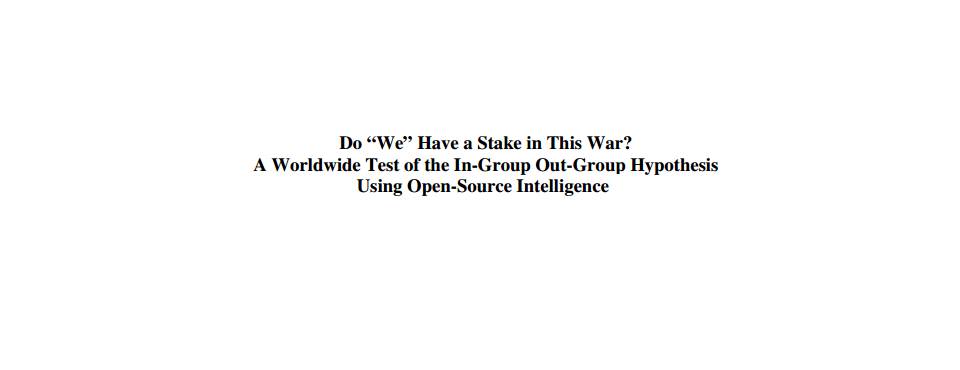
International relations scholars have long suspected that popular support for war is structured in part by in-group reactions to out-group threats. Huntington’s (1993, 1996) “clash of civilizations” hypothesis is one of the most controversial and under-tested extensions of this perspective within international relations. Most of the studies to quantitatively test Huntington’s hypothesis have examined the outcomes of group conflict, asking whether militarized interstate disputes are more likely across than within civilizations. Our study takes a different approach by examining the patterns of discourse that activate group conflict, focusing on a single militarized interstate dispute: the 2003 invasion of Iraq. For over 70 years, the CIA’s Foreign Broadcast Information Service (FBIS) has monitored the world’s press, translating broadcast, print, and internet news content into English from vernacular coverage from almost every country in the world. Our analysis of FBIS data before, during, and after the 2003 invasion of Iraq reveals patterns of ingroup discourse that are mostly inconsistent with Huntington’s “clash of civilizations” hypothesis. Ingroup discourse was prevalent in worldwide news coverage about Iraq, but this ingroup discourse tends to be structured at the level of individual nation-states rather than common cultures.